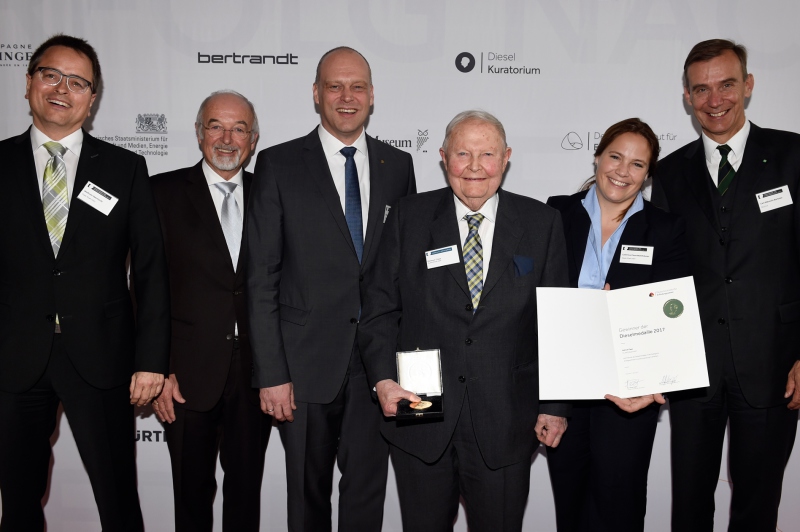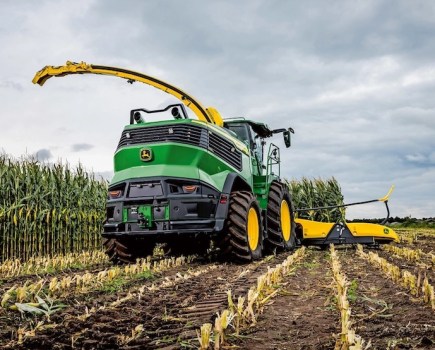Helmut Claas has been awarded the Rudolf-Diesel-Medal by the German Institute for Inventions in the category ‘most successful achievement in the field of innovation.’ Considered the ‘Oscars for Inventors’, the Diesel Medal is believed to be Germany’s oldest innovation award. Eugen Diesel, the son of Rudolf Diesel, initiated the award ceremony in 1953, which places a special emphasis on honouring not just scientific achievement but also the entrepreneurship based on the inventions. “It’s certainly very special to be able to receive such an honour in one’s nineties,” said Mr Claas at the award ceremony in the Hall of Fame of the Deutsches Museum in Munich. “But this is less about me than about our strong team at Claas, and how, together, we’ve been able to combine a love of invention with financial success.” Helmut built the company, founded in 1913 by his father and uncles, into today’s business, which employs around 11,300 workers worldwide and reported a 2016 turnover of €3.6 billion. Born in 1926 in Harsewinkel, Germany, and the eldest of three children, between 1948 and 1954 Helmut completed a degree in mechanical engineering at the Technical University of Hannover. This included a semester in Vienna and a year of agricultural studies in Paris.
His special focus was always on developing pioneering products and mass-producing them economically, and Helmut initiated or co-created a whole series of Claas innovations. Examples include the Dominator combine harvester in the early 1970s. Its successor, the Lexion, was also developed in Helmut Claas’s era, as was the Jaguar self-propelled forage harvester. Caption:From the left: Wolfram Eberhardt (head of Claas corporate communications), Theo Freye (speaker of the Claas executive Board until 2014), Thomas Böck (Claas executive board, responsible for technology and systems), Helmut Claas, Cathrina Claas-Mühlhäuser and Carl-Albrecht Bartmer (president of the German Agricultural Society (DLG) who hold the laudation.






